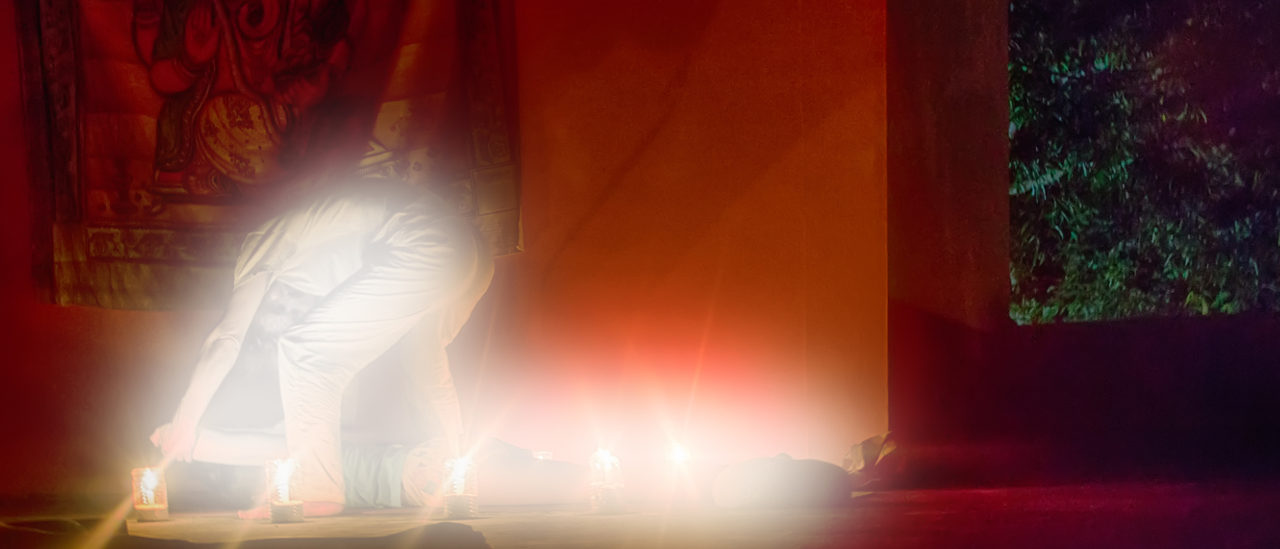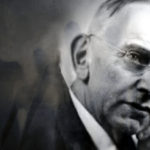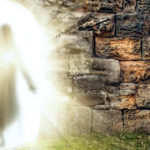I wish to touch briefly on many points of interest, of which the majority will be dealt with in detail in subsequent chapters. I will put the topics in the form of questions asked by readers who have begun to study the theory.
1. What proofs have you of Reincarnation?
It appears to be, as we shall see later on, in harmony with and supplementary to scientific laws: for instance, continuous and orderly Evolution; and to have analogies in daily life – in the life of plants, in sleep, and so forth.
It can explain a great deal that Science, Religion, and Philosophy have left unexplained – for example, the birth of a genius from commonplace parents, and the (otherwise undeserved) misery of so many human beings.
It is useful as a theory by which to decide one’s choices. This utility is not a proof in the ordinary sense of the word “proof,” but from the point of view of education, it is the best proof of all, in the same sense that the proof of the pudding is in the eating – and in the results afterwards!
The occasional memories of incidents in plant lives, which are recorded in books about the East (see, for example, Fielding’s The Soul of a People), will be reckoned by some as proofs.
2. If we have lived before, how is it that we do not remember our former lives
There are some, in India and elsewhere, who claim to remember parts of their former lives. But these are isolated cases. It might be a fair explanation to suggest that few people live the sort of life which would naturally encourage the revival of such a memory. Wrapped up in present circumstances, clogged with wrong food and drink, seldom giving up time to calm communion with the higher Self, no wonder that people do not remember.
From another point of view, it might be defended as “a merciful dispensation of Providence” that people do not remember. The memory would not help people much, as they now are, ands it might hinder them much.
Again, we forget the first year of our life, though we do not on that account deny that we lived it, and that it tended to mould us. We do not possess detailed recollections of that year; but we involve the results in our personality. Somewhat similarly, we do not necessarily remember all the names of all the books we have ever read – and all the contents, all the words of all these books, and all the letters, and all the conversations. Most of the externals we have discarded; it is the results that we have kept. Somewhat similarly, we do not remember all the foods we have ever eaten, still less do we retain all the materials; it is the nourishment and other elements that we have extracted.
So, instead of having the memories of past lives, it maybe said that we are the memories of past lives: we have not the myriads of circumstances and items – rather, we are ourselves the sum-total. As one who receives his pass book from a bank finds that he has a certain balance or a certain deficit, and begins with this taken for granted as his starting-point, so do we in each new life. Some day we may discover the key of the safe that holds our old pass-books.
The memories of details may be locked up within us, within our inner self, buried deep, latent till the exact conditions arise which will evolve and evoke these memories; as the wheat-seed lay hidden thousands of years in an Egyptian sarcophagus, and then came to life as wheat because at last it was planted in soil. The memories of details of our present life may be thus locked up within us, to be called forth by some such influence as calls them forth when a man is drowning: he may then see circumstances which he thought he had absolutely forgotten.
That the memories of details in our past lives are not as ready to hand as are the memories of much of our present life, need not surprise us. Science tells us that memories are registered on and in the grey matter of the brain, by the cells and fibres. Under the “brain” we must include also the spinal cord. I, for one, do not believe that this is the only register. But at least it is one register. After death and the dissolution of the body, this grey matter is broken up and distributed afresh. The ego, in its next incarnation, will have a different brain and spinal cord, and different grey matter. It will not have the old register.
3. What would be the use of knowing about our past lives?
The knowledge of our past lives might be to us no less useful than the knowledge of History. Thucydides claimed that an account of the past was valuable as a clue to the future, which would probably resemble the past. On this principle, if we studied our past lives, we could be forewarned and forearmed against our weaknesses.
Not only this – we could find out how we acquired skill in anything in which we now are “naturally” skillful, and so be able to acquire skill, by a similar process, in other things.
We should, see the causes of what we otherwise would look upon as misfortunes or hardships: we should recognize, these as results of our past choices, and as training-grounds for better character.
There would come to us a greater sympathy with others, a greater desire to help, a greater power to help.
Then we should view qualities and aims in truer perspective. We should realize beyond doubt what are first things and what are second-rate things.
We should have many pleasant memories to recall; though the unpleasant ones – since forgetfulness is often much harder than recollection – would be within us as well.
4. How does the theory help? Cui bono?
To this question a partial answer has already been given in Chapter II. He who believes in Reincarnation believes in a just Power – he believes that his circumstances are those that he has earned; in a kind Power – he believes that, his circumstances are most helpful for him and for everyone else; in a wise Power – he believes that the world is managed in an economical and scientific and foresighted fashion.
5. Would not the theory apply, then, to animals and plants, and even minerals?
Yes, It applies equally to them, suggesting for the mind an evolution like that which Wallace and Darwin suggested for the body.
6. Where does free choice begin? How can minerals, or plants, or certain animals, be responsible?
We cannot say where choice begins. It seems as if minerals were the absolute slaves of certain attractions and repulsions which they could not resist; and plants also. But we can hardly study dogs without thinking that they have consciences that they know when they have done wrong – that they have some power of choice.
- Will any of us become animals again?
This is a question which the theory does not answer. Although some authorities on the subject say that when once the ego has been incarnated in a human being, it cannot ever again be incarnated in an animal, we feel that some animals are on a plane above some human beings. Without dogmatizing, we simply note the possibility that when an ego needed certain physical or mental qualities – say litheness and quickness, or the sense of smell, or patience – that ego might be reincarnated as an animal, if that were the quickest and best way of getting these qualities.
Again, the particles of the body, after dissolution, may come to be particles of animals: naturally, like would be attracted to like. This is one of the meanings of the theory that we – namely, our bodies – may become reincarnated in animals.
8. Do friends meet again? Is it not terrible that we should not recognize our dearest ones?
It is agreed by all who believe in Reincarnation that friends do meet again – and enemies too. It is agreed that the ego meets other egos. But the names, appearances, places, social positions, and so on, may be changed. It is rather the characters that meet.
This may sound cold and comfortless. But we must never forget that on the other hand, in proportion as it would be unpleasant to go on living with our enemies – especially with those whom we have injured. The clinging to old clothes and other familiar things is very human; but there are arguments against old clothes as well as for them!
Though our eyes may not recognize our dearest ones, our hearts do. And the new intercourse, perhaps in a different and much-needed relationship, may eventually help both parties more than a continuance of the old one.
So long as we regard the body as being the whole self and ego, we cannot grasp the theory. Once let us regard the body as to some extent a clothing and a set of instruments, and -suppose we had a friend who was a carpenter – we shall compare his reincarnation in a different body with his visit to us in a different suit of clothes or with a different set of tools.
- How do you account for hereditary traits and tendencies?
The theory most commonly held by believers in Reincarnation is that the ego, when it is to be born again, to be reincarnated, is attracted to the most appropriate infant-body, while that body is still unborn.
But anyhow the outward form of the body will depend chiefly upon the physical parents. The theory of Reincarnation supposes this.
And we should expect that, for example, the ego that had been a dipsomaniac would be attracted to the infant-body whose parents – or one of whose parents – had a tendency in that direction. So of the money-grubbing, the sensual, the inventive, the athletic, etc.
The theory of Reincarnation supposes the ego ready to live again in this world, and needing a certain probation in view of its past choices, and a certain character training in view of its future excellence. The theory supposes an infant-body not yet possessed by any ego, but having certain traits and tendencies belonging to the parents. The ego is given this body as its house, its clothes, its instruments. The ego’s duty is to make the best of them.
10. Why is a person reincarnated into a certain body? Is there any principle to decide?
The answer to Question 9 will be to some extent the answer to Question 10 also.
Naturally, the ego will be attracted into the most appropriate – or least inappropriate – infant-body, all conditions (physical and hygienic and aesthetic, intellectual, economical, moral, and social) being taken into account. The ego will be attracted to the body which is nearest to the one earned by previous lives; and required by present and future needs of character, etc. One influence will be strict justice, another the strongest desires of the ego.
We should expect, then, that often an ego would be reincarnated in an environment to which past friends and enemies belonged. The ego would be attracted to those whom he had injured or by whom he had been injured, so that justice might be done. The ego would be attracted to those whom he had loved or by whom he had been loved, through desire. The ego would be attracted also by the power of the environment, to develop his character and physique, etc., in view of real progress.
For real progress is the aim of Reincarnation, not the petty spite or vengeance of an unforgiving pagan deity.
The Power forgives us our sins not merely by blotting them out, but by giving us the opportunities of blotting them out for ourselves by “doing better next time.”
11. What are the intervals between death and re-birth?
The theory does not say. The intervals are likely to vary enormously.
The Hindus have legends of immediate re-births – a father, for example, being incarnated in the newly born babe the moment after the father’s death on the scaffold.
Possibly the intervals may become shorter as time goes on. Thus, suppose that Charlemagne was reincarnated as Napoleon, the interval was a long one. Suppose Benjamin Franklin was reincarnated as Cobbett, the interval was a short one. When an infant dies, it is likely that the interval is shorter still.
12. Is the same ego reincarnated sometimes as a male, sometimes as a female?
We look upon the typical man as forming his opinions by logic rather than by intuition, and the typical woman as forming her opinions by intuition rather than by logic. A man and a woman discuss a course of action: the man observes, remembers, and reasons from evidence; the woman decides – she cannot tell how or why – she simply “feels or sees”. To this there are many exceptions.
Those who hold that the ego is reincarnated, either as a male or as a female, but not as now one, now the other, might plead that, in order to get the ideal nature, it is necessary for the reason of man to have so much practice that eventually it becomes intuition; somewhat as Epimetheus, studying the past, became able to predict the future as Prometheus could; that, conversely, it is necessary for the intuition of woman to have so much practice – so much testing of prophecies by facts, and corrections, accordingly – that eventually it is equivalent to and includes logic also; that the best way of arriving at the double faculty – reason and intuitions – is the development of each by specialization.
Those who hold that the ego is reincarnated now as a male, now as a female, point to the people with male bodies who have female minds, and vice versa.
We might apply the same principle to other general differences, between man and woman – for example, the masterful independence of man (largely due to artificial conditions of education) and the slave-like ministry of woman. Eventually man finds that his highest and most real mastery is to serve; woman finds that the best ministry makes her most masterful.
The theory of Reincarnation leaves the question unanswered. It seems as if many must need life in the opposite sex-form to make them well-balanced beings, even if they may have a series of successive lives in the same sex-form first.
13. Will Reincarnation be an unavoidable process for all forever?
In the human being and in the animals many tiny beings – not only bodies but also minds – are fused; as in a nation. It is quite possible, then, that there may be two evolutions.
First of all, one ego – already like a nation made up of groups of individual egos – may give rise to two or more egos, by a process analogous to fission of cells. We cannot help wishing now and then, as we watch some great man or woman, that he or she could be duplicated, and be here as well as there!
The very idea of this is repulsive to many. “I” want to be “I,” and only “I” – that is their apparent desire. Yet what energetic person has not longed for two or three bodies with which to work? – there seems so much to be done in so short a time.
You write a letter with your right hand. It seems to demand your full attention. Soon, however, after practice, you can simultaneously write another letter with your left hand. You have two hemispheres to your brain. Is the development of one person into two so entirely absurd? If some day the two fused into one again, would not the experience that each had gained separately be more valuable than the two would have gained by being always yoked together?
Almost equally unpleasant – if not more unpleasant – to most people would be the idea of becoming one with some other ego.* Yet there are married people who are almost as truly one rather than two; as the man himself is when he is playing and when he is working.
A third possibility is that the ego may be annihilated, perhaps somewhat as a nation can when it is split up into widely separated groups. Where is the Assyrian nation now? Once it was a nation – an ego. A Hindu philosopher has tried to prove that the individual is not a separate entity, apart from the lives of which he is composed, but merely the sum-total of those lives, so that when you take away these lives – as if you took away 1, 3, 4, 7, and 9 – you took away the total, 24, also.
A fourth possibility is the exact reverse – namely, a prolonged life without a break. At present we die. But we make a thousand mistakes daily – in our food and drink and ways of eating and drinking, in our air and breathing, in our positions and movements or sedentariness, in our ways of thinking, and so on. Remedy these mistakes, assert and imagine increasing health, let more vigorous new cells take the place of less vigorous old cells continually, and why not live for centuries? Why not rebuild the body?
A fifth possibility is that of living without the heavy physical body.
So Reincarnation is not a law for all for ever without exception.
14. Why did not Jesus Christ believe in it?
We do not find the immortality of the soul set forth as an essential doctrine of Jesus Christ. We do not find the physical evolution – which Spencer, Wallace, and Darwin have gone so far towards proving – thus set forth. We do not find even the most obvious rules of physical health insisted on. Silence or a passing mention is no proof that Jesus Christ disbelieved in this or that view.
When he was asked whether a certain man or his parents had sinned that he should be born blind, he said that in this case neither cause was the true one. He did not deny heredity, nor did he deny Reincarnation (a man could not have sinned before being born, unless he had sinned in a previous life). Indeed, he said of John the Baptist, “If you will receive it, this is Elias that was to come,” and again, when they asked him how it was that the Scribes said Elias must first come (before the Messiah came), he answered, “Elias has come, and they have done to him what they pleased.” clearly alluding to the murder of John the Baptist.
We might say that the idea of Reincarnation underlies many of the teachings of the New Testament, as we shall see in the chapter called “New Light on Old Texts.” How, for instance, can one accept the idea of original sin by a man who has never had conscious choice before? The idea of sin without choice is, to me at least, inconceivable.
And is not Reincarnation one – not the only – explanation of that phrase, “Ye must be born again”?








